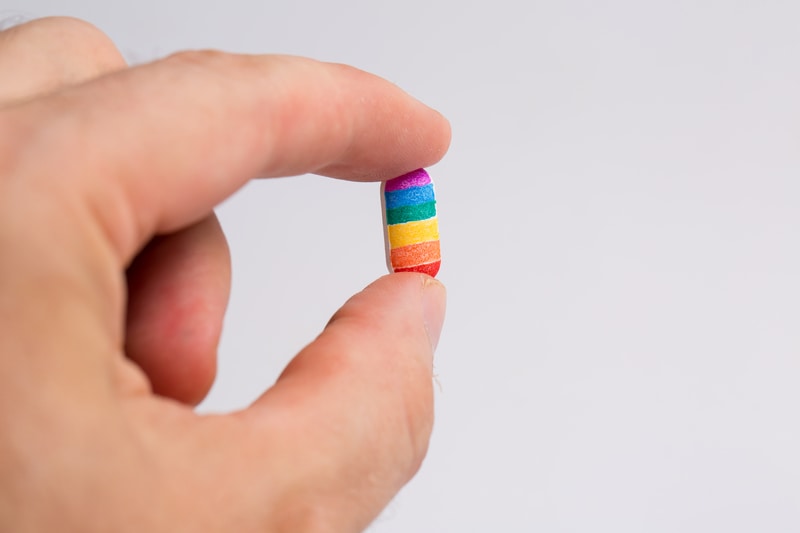Many in the LGBTQ community face various challenges in their daily lives, whether it’s discrimination or hostility. Receiving cancer care creates even more challenges due to the unique way it impacts LGBTQ people. Understanding the various LGBTQ health disparities is essential in overcoming these various obstacles in cancer care.
Here are a few ways that cancer uniquely impacts the LGBTQ community.
LGBTQ Health Disparities
One of the biggest challenges in providing health care for the LGBTQ community is that some types of cancer are higher among these individuals compared to heterosexual people. For example, lesbians who use tobacco are five times more likely to develop colorectal or breast cancer than other women. Additionally, transgender individuals have nearly three times the likelihood of experiencing infection-induced cancers. LGBTQ people are also more likely to smoke, which significantly increases their risk of developing lung cancer.
LGBTQ+ Discrimination and Health Care
The potential of facing LGBTQ discrimination is another reason why individuals may avoid pursuing cancer care. A report from Lambda Legal found that half of the LGBTQ survey participants faced some type of discrimination by professionals in healthcare due to their sexual orientation. Even 27% of transgender respondents reported that they were denied health care outright.
The likely potential of LGBTQ discrimination is one of the main reasons why these individuals are less likely to disclose their gender identity or sexual orientation to a physician. However, knowing this critical information is important in receiving the best course of treatment. One way to overcome this common issue is to include gender identity and sexual orientation on medical records to avoid disclosing this information to healthcare professionals constantly.
Recognizing the Unique Support System for LGBTQ People
Many LGBTQ people are afraid to disclose their sexual orientation or gender identity to physicians due to the potential of being treated unequally. However, disclosing this information can be helpful for the support person, as they will feel less stress and be more included in the conversation. Revealing this information makes it easier for physicians to understand the unique support system, which allows them to receive more inclusive and well-rounded cancer care. Maintaining a solid support system is especially important while going through cancer treatment plans.
Lack of Access to Health Care for LGBTQ Community
Many members of the LGBTQ community face extensive barriers to receiving proper cancer compared to heterosexual people. Studies show that 27% of sexual minority women were unable to visit a doctor due to the expense compared to 12.5% of heterosexual women. Similarly, 13% of sexual minority men were unable to see a doctor due to the expense compared to 7% of heterosexual men. Additional stats show that 43% of sexual minority women had poor access to health care compared to 28% of heterosexual women. All of these different stats highlight the many challenges of LGBTQ healthcare.
LGBTQ People receive More Counseling and Support
The need for counseling and support groups is much higher for the LGBTQ community. Having access to someone to talk with after receiving a cancer diagnosis is essential for mental health. Many cancer survivors find it very beneficial to attend support groups or to receive mental health counseling. Various studies show that LGBTQ people are more likely to participate in these support groups. For example, 42% of sexual minority women that are breast cancer survivors participated in a support group compared to only 25% of heterosexual women. Similar numbers also show that 45% of sexual minority women that are breast cancer survivors attended counseling compared to only 18% of heterosexual women.
However, researchers remain unsure if counseling and support groups meet the individual needs of the LGBTQ people, as the data doesn’t include the length of stay or if they felt comfortable with these services. Despite these caveats, the higher attendance rate may indicate that LGBTQ people have additional coping mechanisms because of their tendency to attend support groups and counseling sessions.
One reason for the higher chance of receiving mental health counseling is the increased likelihood of previously receiving support before becoming aware of a cancer diagnosis. For example, 74% of LGBTQ women had already attended mental health counseling in the past. Receiving counseling and support makes it much easier for LGBTQ people to develop effective coping mechanisms to overcome the numerous challenges of cancer.
Additional Need for More Studies
More research is needed to identify LGBTQ health disparities to provide these individuals with the support they need for receiving the best cancer care available. Besides looking at the various challenges, more research must focus on how to best support the LGBTQ movement to ensure they receive fair treatment in healthcare. LGBTQ organizations can play a crucial role in highlighting these challenges to bring greater awareness to this problem.

